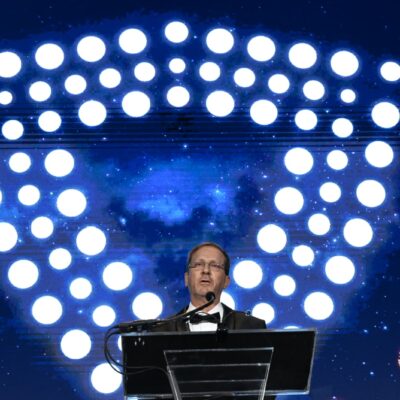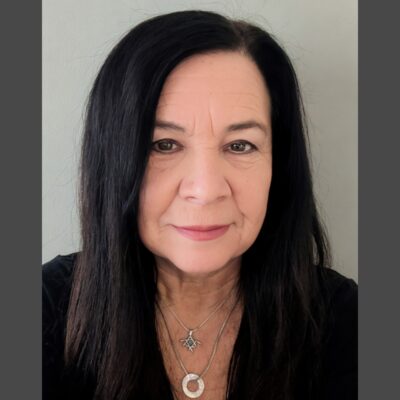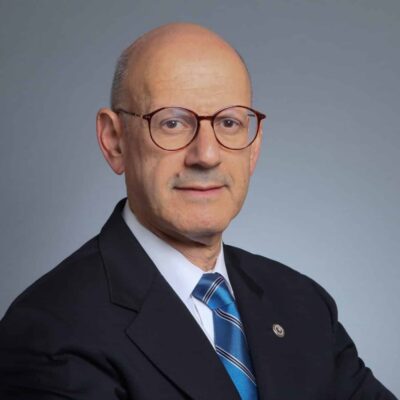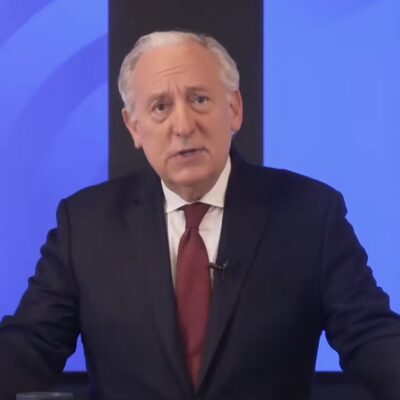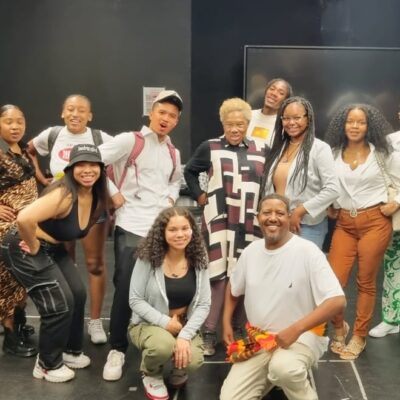ON A MISSION
At the JFNA General Assembly, Jewish Agency CEO Yehuda Setton looks for partners, not funders
The newly installed executive will also use his time in the U.S. to 'preview' the organization's strategy, which will be presented in full at its board of governor's meeting in Tel Aviv next week

Dudi Salem/Zug Productions
Yehuda Setton, COO of the Jewish Agency and the incoming CEO of the organization.
As Jewish Agency CEO Yehuda Setton visits the United States this week for the Jewish Federations of North America General Assembly, his primary goal is not to raise money for his organization but to find new partners and opportunities for collaborations, he told eJewishPhilanthropy shortly before leaving Israel this weekend.
Setton entered his role last month, who was selected in August to succeed Amira Ahronoviz, who announced she was stepping down as CEO in April. So the U.S. trip also offers Setton an opportunity to hold some of his first high-level meetings — with representatives from JFNA, individual federations and Jewish foundations — since taking his position.
“It’s not, ‘Will they give another million to the Jewish Agency?’ but, ‘Will they make Israel stronger and ensure the future of the Jewish people?’” he said.
At the General Assembly, the Jewish Agency also celebrated the 30th anniversary of its strategic partnership with JFNA, hosting a dinner on Sunday night that was attended by Jewish Agency Chairman of the Executive Doron Almog and the group’s board chair, Mark Wilf.
“For me, this is the opportunity to see the people — after a year of war in Israel, I haven’t been traveling like I normally travel. I want to see people who love Israel and support Israel and show my gratitude for that. It’s my first time in the new role to address the strategic focus of the [Jewish] Agency.”
Setton stressed the importance of the current moment — when Jews around the world, and in Israel in particular, feel vulnerable and alone — to strengthen the ties between Israel and the Diaspora.
“We need to leverage the power of the Jewish people to help the State of Israel and Israelis who, after a year of war, need the Jewish people and need to believe there is a better future, a hope for peace and security,” he said. “[Israelis need to feel] that someone is looking after them, to feel that they are not alone.”
The General Assembly also comes roughly a week before the Jewish Agency holds its own Board of Governors meeting, in Tel Aviv, where Setton intends to lay out the organization’s strategy for the near future.
In his meetings in Washington, Setton said he will be offering a “preview” of the Jewish Agency’s strategic plans and have an “exchange of thoughts” about what it entails, but stressed that the full details will only be presented at the Board of Governors meeting.
“Not all of the people [at the General Assembly] will come to Israel, so this is an opportunity to share and say what we are doing for the State of Israel and the Jewish people in 2025 and beyond,” he said. “But I don’t want to be in a position where I am sharing [the plans] with the Americans before people from around the world.”
A key facet of the Jewish Agency strategy will be an update to its flagship shlichut (emissary) programs, which send Israelis to Jewish communities abroad, for one year in the case of post-high school shinshinim and two to three years for post-military emissaries.
“Shlichim [emissaries] let you feel that even if you don’t come to Israel or don’t have the ability to give money to Israel, through the shlichim, you can feel that you are helping Israel,” Setton said.
“For the young people who served in the army and did reserve duty, it gives them the feeling that they are not alone.”
Setton said he wants to significantly expand the program, doubling the number of Diaspora communities that are reached. That will require both finding additional Israelis willing to travel abroad for extended periods and finding the communities to host them, as well as the financing to make it all happen.
“Finding the Israelis — I don’t want to say it will be the easy part, but that’s the part that we can take care of,” he said.
One idea that Setton has to support the expansion is to create a new, shorter “model” of shlichut. Instead of a post-high shinshin spending a year in a given community, they would move between locations every three months, allowing them to develop connections with more communities. The communities would also be exposed to more Israeli emissaries.
“Because they move between the communities, they see different ones. They can share their experiences. They create more connections and more relationships,” Setton said. “I don’t know if it will be a huge success or failure.”
More broadly, Setton said he wants the Jewish Agency to focus on planning for the future and not just responding to immediate emergencies.
“Most of what we do right now, most of our reactions, is ‘What are the immediate needs and how can we help?’” he said. “We also need to think about where the future is going.”
Setton said he believes that thinking beyond immediate needs will empower the Jewish people in general and Israelis specifically. When you address an immediate need, people “say thank you and move on,” he said. “When you do things that people don’t expect, they immediately feel more resilient, that there is more hope.”
Setton said he hopes to see Jewish organizations expand their fundraising efforts, shift away from focusing on the so-called “mega donors” in favor of broader appeals.
“There has been more focus on large donations, and the number of people who donated declined dramatically,” he said. “Now we are at a point of time when we need a lot of small donations. That will be their way to connect to the Jewish community. The money is a demonstration, making more people feel that they are part of this [effort].”
He added: “That’s why it’s not about fundraising, it’s about engaging more people.”

 Add EJP on Google
Add EJP on Google


